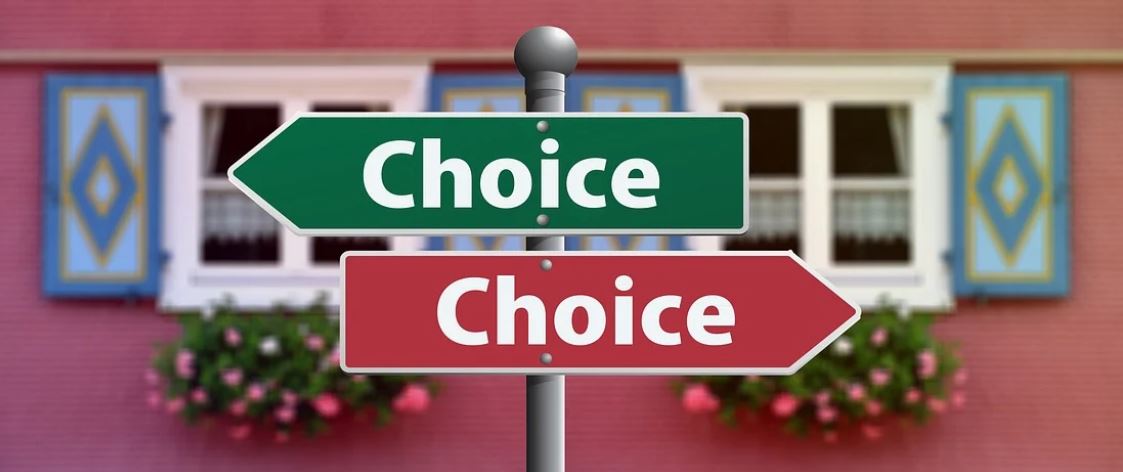trade-off for new business

The trade-off is what every business practice in different stages deliberately or not. Here let’s focus on the trade-off for new businesses.
For a new business, trade-off means a decision to walk towards the south direction means forfeiture of the northern direction.
So you need to be fully aware of which direction is best to take at the beginning. And don’t attempt to go both ways at the same time, that is like catching 2 birds with one hand at a time, you most likely lose both.
Most often, businesses have limited resources and time is number one to engage in two opposing activities;
In the book of Ecclesiastes chapter 3: 2-8 tells us;
“There is a time for everything,
and a season for every activity under the heavens:
a time to be born and a time to die,
a time to plant and a time to uproot,
a time to kill and a time to heal,
a time to tear down and a time to build,
a time to weep and a time to laugh,
a time to mourn and a time to dance,
a time to scatter stones and a time to gather them,
a time to embrace and a time to refrain from embracing,
a time to search and a time to give up,
a time to keep and a time to throw away,
a time to tear and a time to mend,
a time to be silent and a time to speak,
a time to love and a time to hate,
a time for war and a time for peace.”
These verses clearly tell us that whatever activity you chose must align with the right timing. And when you chose one that means you forgo the opposite alternative.
For example, you can’t choose to plant and uproot at the same time because the timing and resources are different for both. You need a planter or grain drill to plant while reaper is used for uprooting. And if your resources can only afford one, you need to choose wisely which to focus on.
Let’s look at the common trade-off new businesses are faced with;
- High-end customers vs low-end customers
- Quality vs quantity
- Common vs Unique
- Inhouse or outsource
High-end customers vs low-end customers
The right customer group will determine how your business will grow over time. A focus on high-end customers means you’re dealing on product or service that matches their taste. That automatically means many low-end customers wouldn’t be interested in such a product or service because most likely they can’t afford it.
There are many factors to consider in deciding which customer group to start with. For instance, If your business needs a physical outlet, the geographical location will be an important factor.
The scriptures tell us that, the kingdom of God target group are those who can be like little children.
“But Jesus said, “Let the children come to me. Don’t stop them! For the Kingdom of Heaven belongs to those who are like these children.”
Matthew 19:14
Therefore, anyone who wants to make it to the kingdom of God clearly understands the acceptable criteria. You can apply the same principle to your business, be definite with the customer group you can cater to.
Quality vs Quantity
Quality means the standard of something as measured against other things of a similar kind; the degree of excellence of something. And quantity is a measure of number or amount.
Most businesses have a goal to make high sales, but you have to decide whether you go for quality over quantity. Avoid starting with both because you need to build your brand on a consistent offering so your customers can easily identify what your business stands for.
If your business value proposition is high-quality goods or services means less number of products or services you can produce at a time. Your decision to choose quality over quantity will depend on your target customer group. High-end customers will appreciate high-quality products or services vice versa. It would be erroneous to offer high-quality products to low-end customers who are interested in quantity.
Common vs Unique

If your business is into producing a physical product, you need to decide whether your product will be unique from the rest of the competitors or common. Unique product may not necessarily mean high-quality product, your competitive advantage could lie on how distinct the product is presented from the competitors.
On the other hand, when dealing on common products, let your strength lie on the customer services, before or after-sale services that can make you stand out.
Inhouse vs Outsource
There are times when outsourcing is the better option to opt for especially if it’s cost-effective than in-house hire. However, it’s advisable not to outsource the core of your business but have an in-house team. Example if you run a restaurant business, the cooking shouldn’t be outsourced, but you can outsource the delivery part to a reputable delivery company.
As a new business, you may not have the resources to run your own delivery service. Therefore, it’s safe to outsource services that can be performed better by another established company while you focus on the core of your business.
Takeaway: Most decisions you make in business is a trade-off for the alternative. So take your time to weigh the options and objectively decide which work best for a new business to strive.









